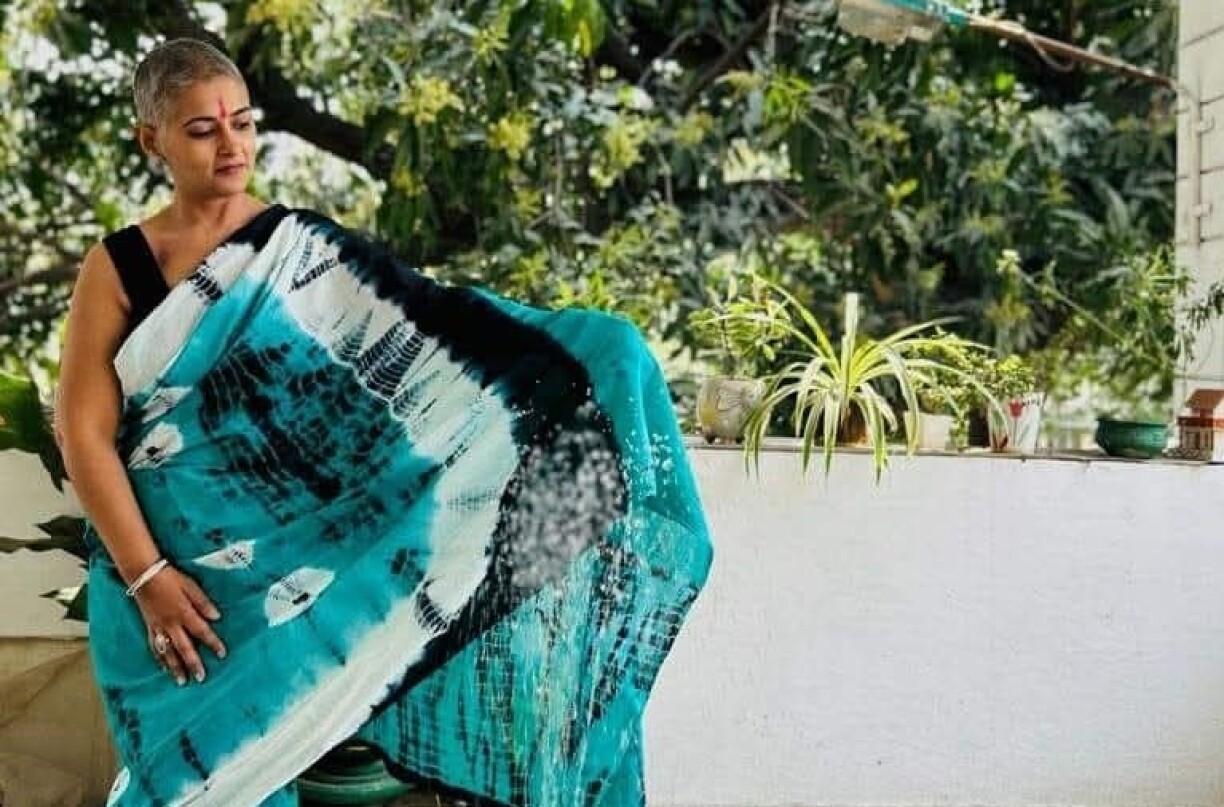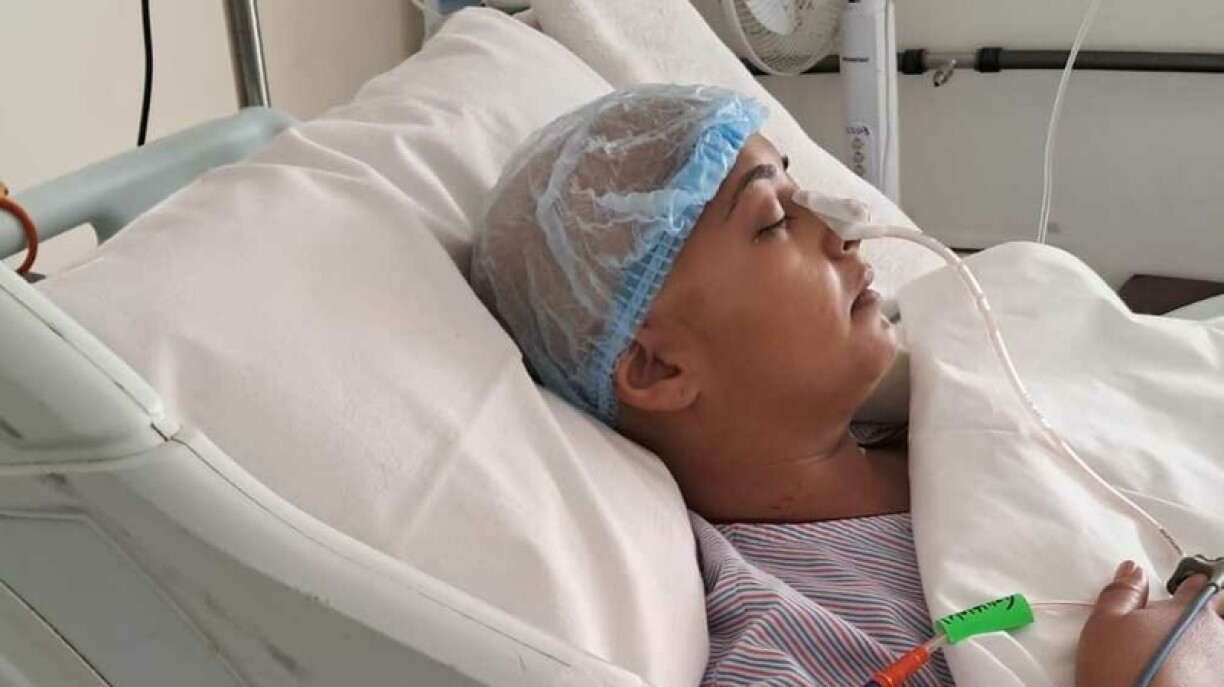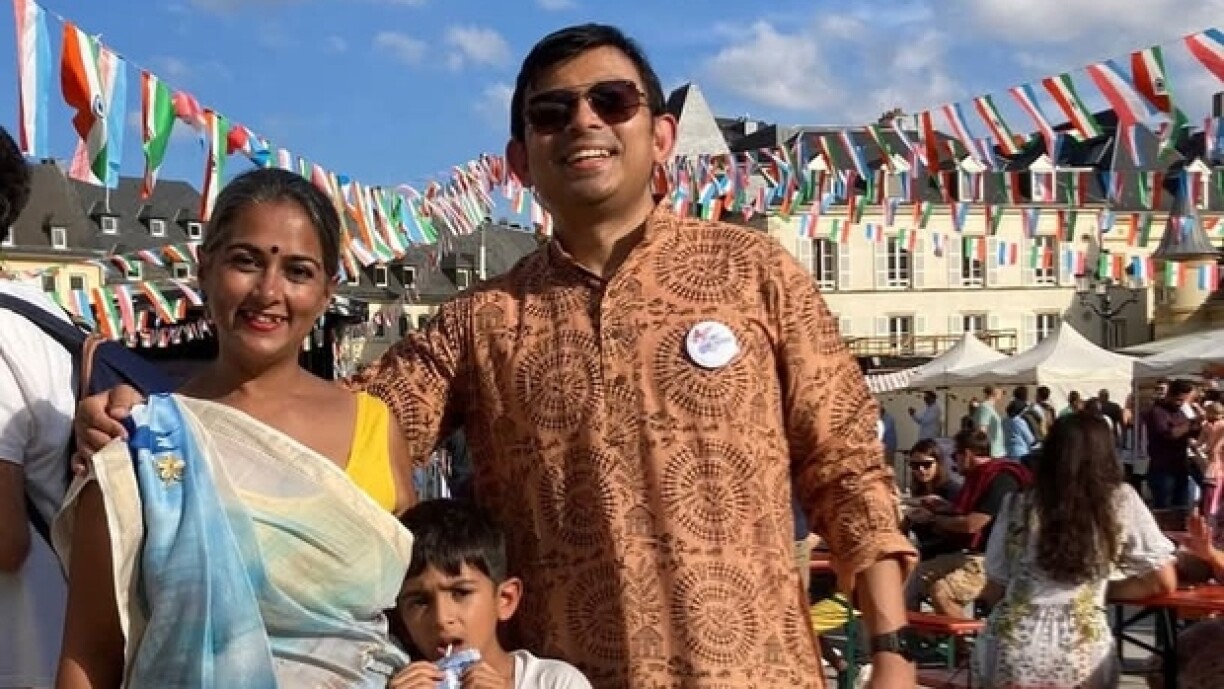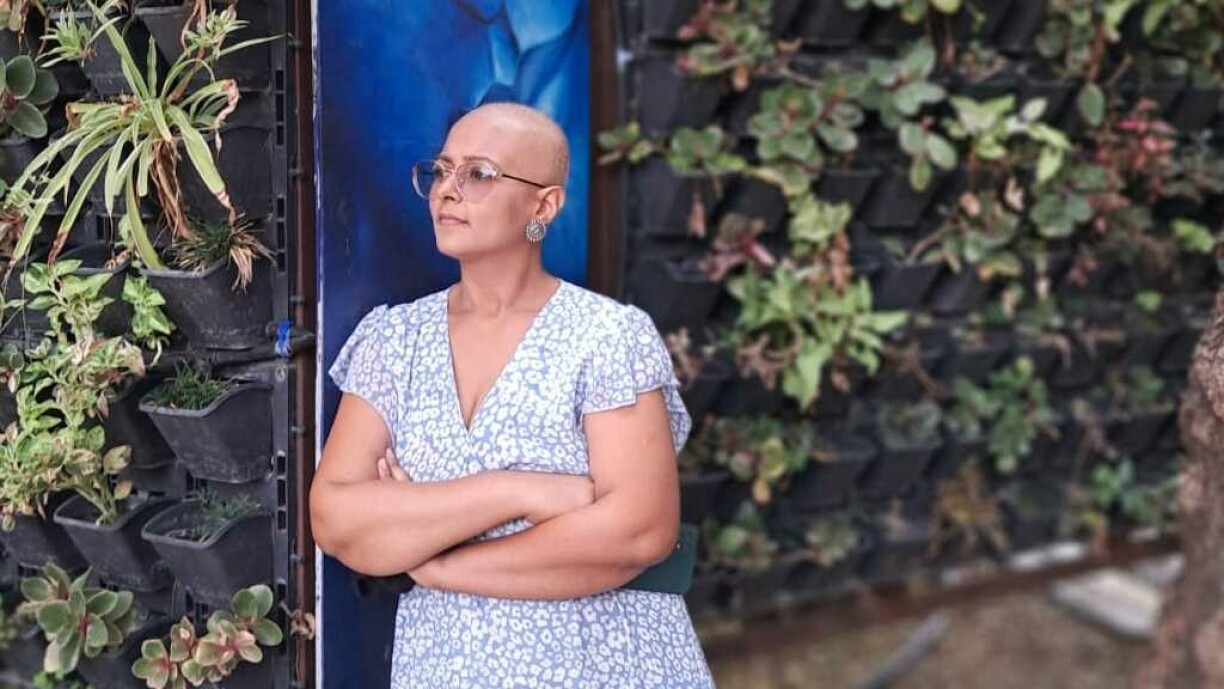
Luxembourgish resident Nimkee Gupta was on holiday in her native India when a routine health check detected a tumour. This was followed by a devastating diagnosis of Stage 3 ovarian cancer.
Ovarian cancer, also known as a ‘silent killer’, often goes undetected. This is because common symptoms such as fatigue, bloating, diarrhoea and abdominal pain are often mistaken for other diseases, including irritable bowel syndrome (IBS), premenstrual syndrome (PMS), endometriosis or even depression. “The most prominent symptom I had was fatigue,” says Nimkee. “As this can be associated with PMS or other everyday things, I didn’t realise it was a symptom of cancer. I also had a slightly distended stomach, but I didn’t feel bloated in the usual way. I was lucky that the tumour was discovered during my routine check up.”
What started as a week-long trip turned into a months-long stay, as she decided to remain in India for treatment. “My parents are both doctors so helped me get an appointment with a specialist. Within a few days, a biopsy had confirmed Stage 3 ovarian cancer. We then researched oncologists across the country and I was able to choose a consultant. Thankfully there was no metastasis, but I was recommended to have surgery and six sessions of chemotherapy.”
As it turned out, Nimkee would require several surgeries. “From November ’23 until February ’24, I was having at least three surgeries every month due to complications and infections.” Navigating the CNS reimbursement system was difficult seeing as she was abroad, but with help from her employer, Nimkee was able to claim back her medical costs. Once she returned to Luxembourg, the CNS also covered expenses for physiotherapy sessions. She remains incredibly grateful that she was granted sick pay throughout the time she needed it.

During her treatment, maintaining her image was important to her. “Fifteen days after the chemo, I started losing hair. I knew that would happen, so I was proactive. I buzzed my hair and got a wig made. I wasn’t sure how my son would feel if I was bald.” Nimkee believes there are different ways of dealing with disease. “In my opinion, one good strategy is to surround yourself with beauty. And wearing the wig was one of my ways of doing that. It also allowed me to keep things as normal as possible for my son.”
One of the huge benefits of having the treatment in her native India was that her parents and extended family were there to offer hands-on support, which was particularly crucial for her son who was six years old at the time. “There was a period of about 12 days surrounding my surgery that I didn’t see my son in person. We spoke on the phone. But that was hard.” Every time Nimkee came home from a chemo, she would self-isolate for a week to protect her immune system. “But even though I had to shut myself away, my son always had family around and we scheduled a lot of activities for him. He learnt how to sketch, how to play football and cricket.”
Nimkee and her husband contacted their son’s Luxembourgish school to reach out for help. “To ensure he didn’t fall behind, the teacher scheduled two lessons with him per week. We used to log into Teams from India and join in storytelling sessions. The school was so supportive which was fabulous.” Upon returning to Luxembourg, Nimkee says her son’s teacher noticed that he went through a quiet phase, but it was not long before he was back to his usual self.
Nimkee finds solace in music and is a firm believer of its healing properties. “We are a musical family - I sing, my husband plays piano and guitar, and my son takes both Western and Indian Classical music lessons.” Her son’s music teacher found out about Nimkee’s cancer and encouraged her to join in the classes, allowing her and her son to find joy together through song. “I used to sit in his classes, and I used to sing with him because it just made me feel better.”
Music is not the only thing that Nimkee has turned to throughout her cancer experience. Physical activity and healthy eating are crucial to Nimkee building up her strength and keeping her core intact following her hysterectomy. She follows a specific diet, avoiding meat, dairy and alcohol. In solidarity, her husband and son have also made dietary changes. “Processed food, foods with high sugar content, these are so deeply ingrained in the way we live, so making a change seems big and inconvenient. I know that it took a lot of effort for my husband to make changes to the way he lives.”
Ayurvedic medicine helps her to feel her best and combats the effects of her regular maintenance treatment. Meditation, reiki and therapy are all important to her daily life. “I’ve been in therapy for many years. I enjoy therapy. Nowadays it’s not so much to do with problem-solving, but exploration.” She believes in building a similar self-awareness in her son, and the family have attended some group therapy sessions together. “My therapist kept impressing on me that this experience will make my son stronger, provided you gauge what information you’re giving him. There’s absolutely no need to hide anything, as long as you do not transfer your insecurities to him.”

Nimkee maintains that she and her husband have always encouraged constant communication. When her son asks questions about mortality, she explains that it is important to establish the context surrounding these questions. “What happens after we die? Will I die? Will you die? Oh, I’m sick, will I die? What is important is whether he is asking those questions out of curiosity, or out of fear. From a fact perspective, he is very aware that we all will die. We talk to him a lot about philosophy, you know, this is a journey, and the journey is as important as the destination. If you don’t make it fun, then what’s the point? You might die of boredom rather than disease!”
By the sounds of it, Nimkee’s son is certainly taking this on board and living life to the full. She tells me that a few months ago, he performed in a festival, singing ‘Unstoppable’ by Sia. When asked about his song choice, he replied, “I don’t know. It reminds me how you got well.” Visibly emotional, Nimkee says, “I was so shocked. And so proud of him. He’s seven years old and he thinks like this. It is amazing.”

Nimkee has various plans in the pipeline for raising awareness of cancer, prevention and screening, and women’s health. “The biggest issue I see with cancer patients is that they don’t want to talk about their story because it’s sad. They might recover physically, but cancer doesn’t stop once the operation is done. Or when chemo ends. It’s a huge mental scar.”
However, Nimkee comes across as an optimist as well as a pragmatist. “I’m so p****d at the disease that I thought that the only way to screw it is to by spreading awareness!” She hopes that by sharing her experiences, it will open conversations and motivate people to get checked out. Firm in her conclusion, she tells me, “I have become a very strong believer in the fact that if you stay open, good things will come to you.”
Follow Nimkee on LinkedIn, Instagram or Facebook for more info on ovarian cancer, her work with the World Ovarian Cancer Coalition, and updates on her personal journey.